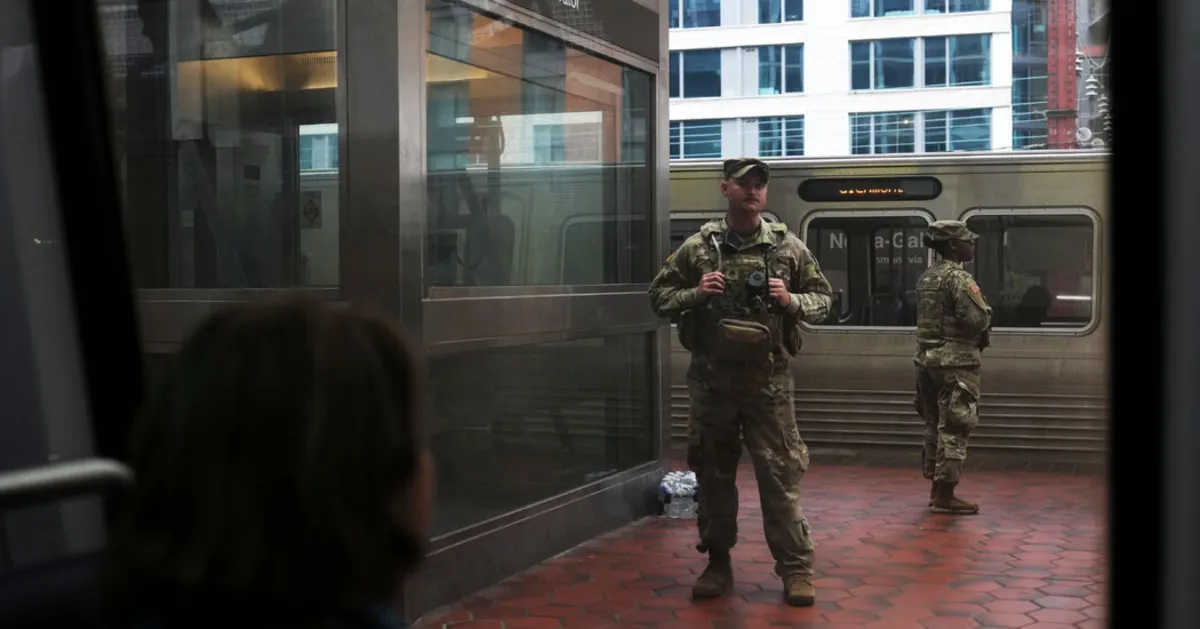
On Sunday, Democrats pushed back against President Trump’s characterization of blue-state cities as crime-ridden and lawless. This narrative has been used by the White House to justify the deployment of National Guard troops and the presence of federal law enforcement agents on the streets of Washington, D.C. During a press conference on Friday, President Trump hinted at the potential for similar actions in other major American cities, naming Chicago as a possible target for federal intervention.
Rahm Emanuel, the former mayor of Chicago, appeared on CNN on Sunday and criticized President Trump’s threats as less about addressing crime and more about his animosity toward Chicago’s Democratic leadership. Emanuel suggested that the president's focus on cities known as sanctuary cities was more a reflection of his immigration policies than a genuine crime-fighting strategy. “When you look at what he did in D.C., he’s not going to actually deal with crime,” Emanuel stated, emphasizing that the focus should be on welcoming communities rather than punitive measures.
Illinois Governor J.B. Pritzker also weighed in on the situation, stating in a Saturday statement that there is “no emergency that warrants the president of the United States federalizing the Illinois National Guard” or deploying federal agents. Pritzker noted he had not received any communication from the White House regarding such actions, accusing Trump of attempting to “manufacture a crisis” in light of falling violent crime rates in cities like Chicago and Washington.
On Sunday morning, President Trump took to social media, mentioning that he was considering sending National Guard troops to Baltimore, describing the city as “out of control” and “crime-ridden.” In a counter to Trump's claims, Maryland Governor Wes Moore, a Democrat, highlighted the significant drop in homicides in Baltimore, calling the president's rhetoric outdated and reliant on “1980s scare tactics.” In a gesture of goodwill, Moore invited Trump for a “safety walk” in the state, to which Trump responded with a definitive “no,” asserting he would send troops only to “clean up the crime disaster.”
Baltimore Mayor Brandon Scott expressed his disinterest in having the president visit the city simply for a photo opportunity. However, Scott did advocate for additional resources from federal agencies like the F.B.I. and Drug Enforcement Administration to assist local law enforcement in ongoing investigations. Governor Moore fully supported this call for more federal resources, emphasizing the need for collaboration rather than federal takeover.
While Democrats have challenged Trump's alarming descriptions of violence and chaos in blue cities, they have also acknowledged the public's concerns regarding crime. Emanuel underscored the importance of prosecuting gun crimes and tackling the issue of carjackings, which have not seen the same decline as other crime categories. He affirmed that Chicago already has a viable strategy in place focused on increasing police presence and addressing the root causes of crime.
Representative Hakeem Jeffries, the House minority leader from New York, reiterated that the Democratic Party is aware of voters' desires for continued drops in crime rates. However, he firmly stated that President Trump had “no basis, no authority” to send federal troops or agents to cities like Chicago. “The American people understandably want safer communities,” Jeffries remarked, emphasizing the need to support local law enforcement in the fight against crime.
In a recent interview, Zohran Mamdani, the Democratic nominee in New York’s mayoral race, echoed the sentiments of his party, stating that New Yorkers are not seeking law enforcement assistance from Washington. This further illustrates the Democratic commitment to local solutions for crime rather than federal intervention, aligning with their broader message of community-focused governance.